Ethiopia Valley Ji Anna Sola Manor Dorothy Coffee Bean Enzyme Wash Peach Oolong Flavor Introduction
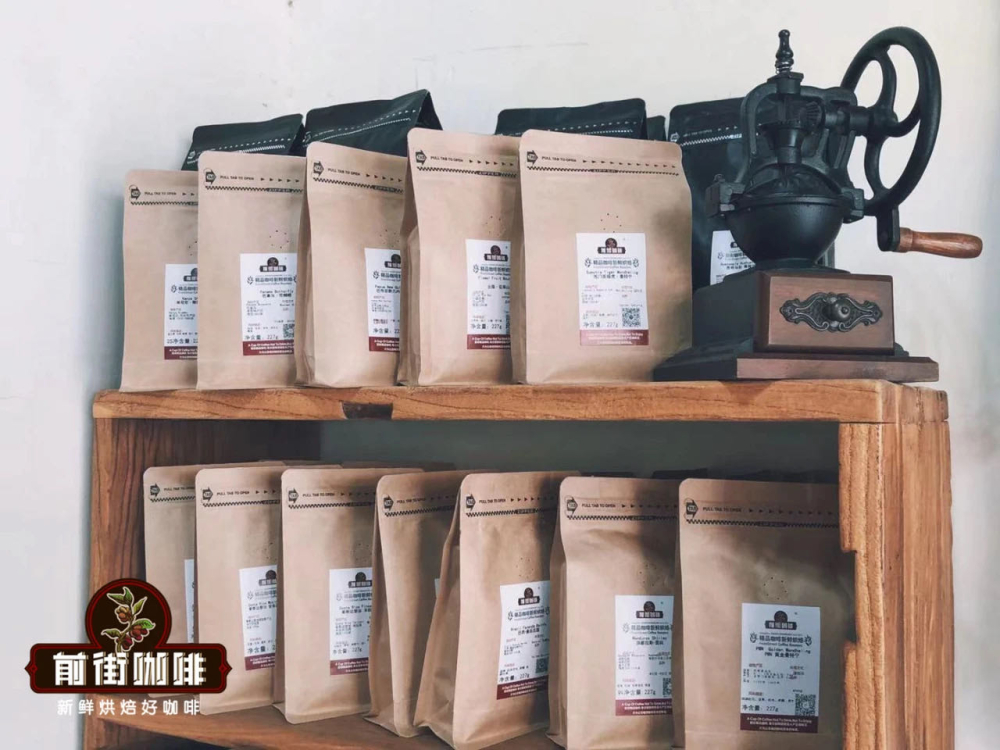
Ethiopia, as a recognized birthplace of coffee, is full of treasures, and Ethiopia's boutique coffee is also a coffee producer praised by many coffee gluttons. Ethiopian boutique coffee beans mostly use sun and water washing, only so deal with simple coffee beans, its unique flavor characteristics are also a surprise to many coffee lovers. Among them, there is the existence of Sidamo coffee beans, which are sour, sweet and delicious, like fruit juice.
Sidamo is one of the major coffee producing areas in Ethiopia and is also rich in high-quality high-quality coffee beans. Humbela Sakuran of Sidamo is a good example. In 2017, Huakui Coffee Bean won the first place in the suntan section of the TOH Competition in Ethiopia with its rich strawberry cream flavor. Sakui Coffee Bean also helped Li Jianfei win the second place in the Chinese Division of the World Coffee Brewing Competition full of Rose Summer Coffee beans. Over the next few years, the attractive berry cream of Sakuran Coffee is also there for all to see.
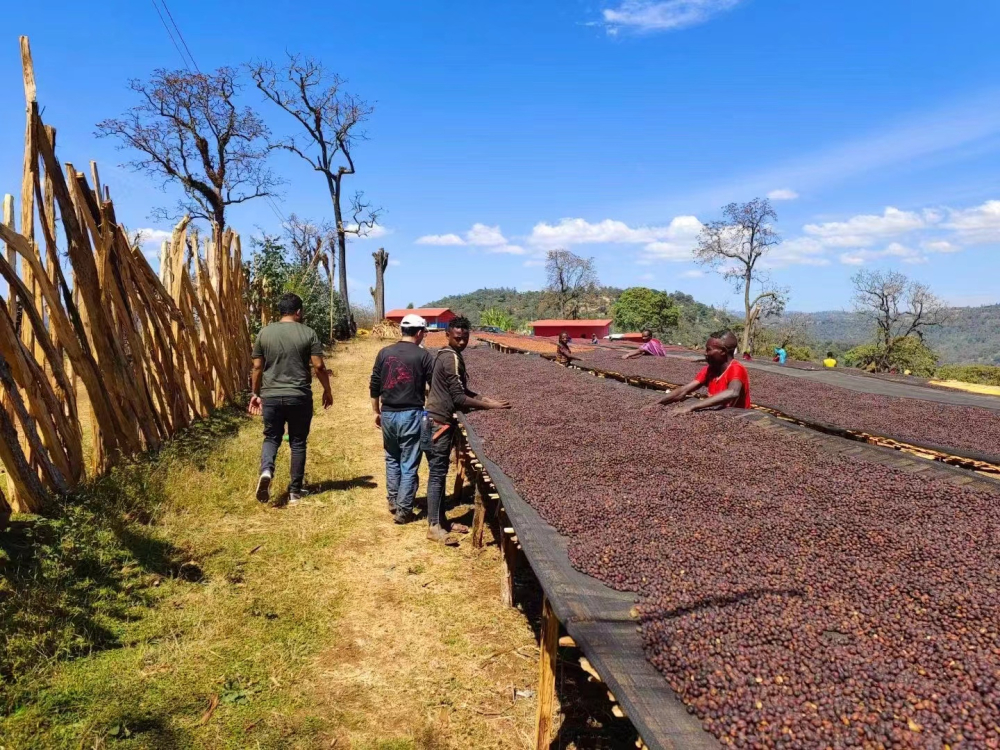
Now, Sidamo coffee beans once again appear in front of everyone with a new identity, but it is no longer the rich berry flavor, but the fresh peach flavor, which makes many coffee lovers look at this producing area with a new impression. And a popular spicy chicken, fruit tea-flavored coffee beans on the market, whether used to make hot hand-brewed coffee or cold extract, have received a lot of positive feedback.
The white peach oolong-flavored coffee is attractive, and the outstanding flavor makes everyone forget that this "red spicy chicken" is a coffee bean from Guji. The Guji region belongs to the Sidamo region, and since 2010, the Ethiopian Commodity Exchange (ECX) has separated the Guji region from the Sidamo region in order to create more boutique coffee producing areas like Yega Sheffield, which is now a key project in Ethiopia.
In recent years, the quality of high-quality coffee beans in Guji producing areas is obvious to all. Coffee beans from Guji producing areas are often seen in TOH raw bean competitions and COE competitions. On the Qianjie bean list, two coffee beans from the Guji producing area have won the competition mentioned above: one is the Sakui coffee bean, which won the sun drying in TOH Ethiopia in 2017, and the other is the inflorescence coffee bean, which won the TOH washing group in 2020. The two types of coffee beans have their own characteristics and should not be missed.
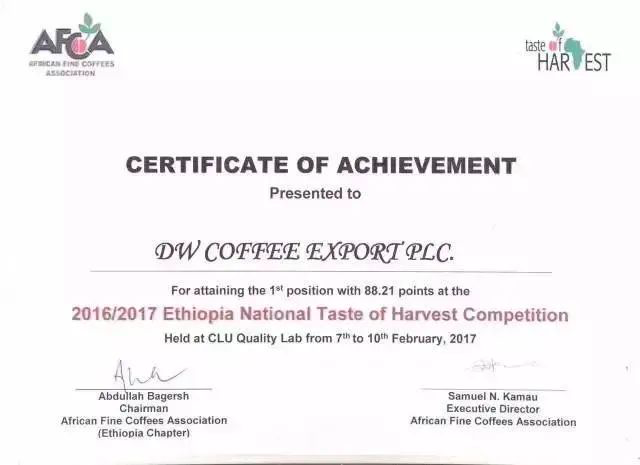
In this way, Guji producing area is a producing area rich in high-quality high-quality coffee beans. The well-known white peach oolong flavor coffee beans, the raw bean name is Dorothy, produced from the Anasola region of Guji production area.
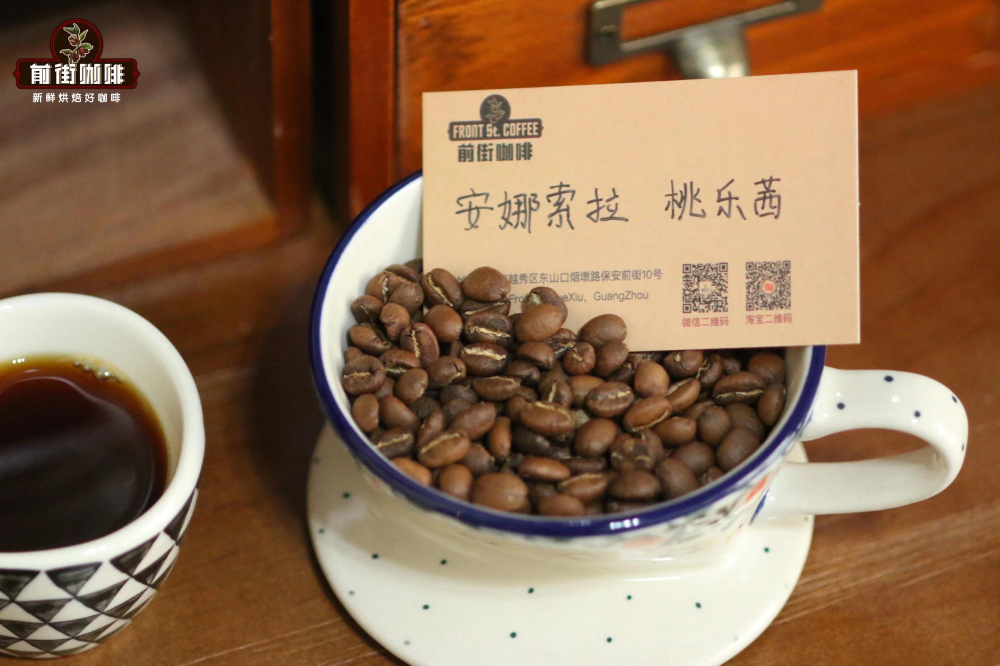
Qianjie coffee Ethiopian white peach oolong Dorothy coffee beans
Producing area: Guji Guji
Manor: Anna Sola Ana Sora
Altitude: 1900 m-2350 m
Grade: G1
Variety: native species
Treatment method: enzyme washing
Production season: 2021
Anasola is the name of a village in Esseguji, and near the village of Anasola, there is a young but famous coffee plantation with the same name as the village, Anasola Ana Sora. Anasola Manor, established in 2010, covers an area of 250 hectares and coffee cultivation covers an area of about 150 hectares. Coffee growers plant plants such as acacia trees and fake bananas near the coffee growing area, which usually provide shade for coffee crops and become an indispensable source of nutrients for coffee crops when withered branches and leaves fall. Because of its planting altitude of 1900 to 2350 meters and fertile red soil rich in iron, Anna Sola's coffee beans are very popular because of their sweet and sour taste.
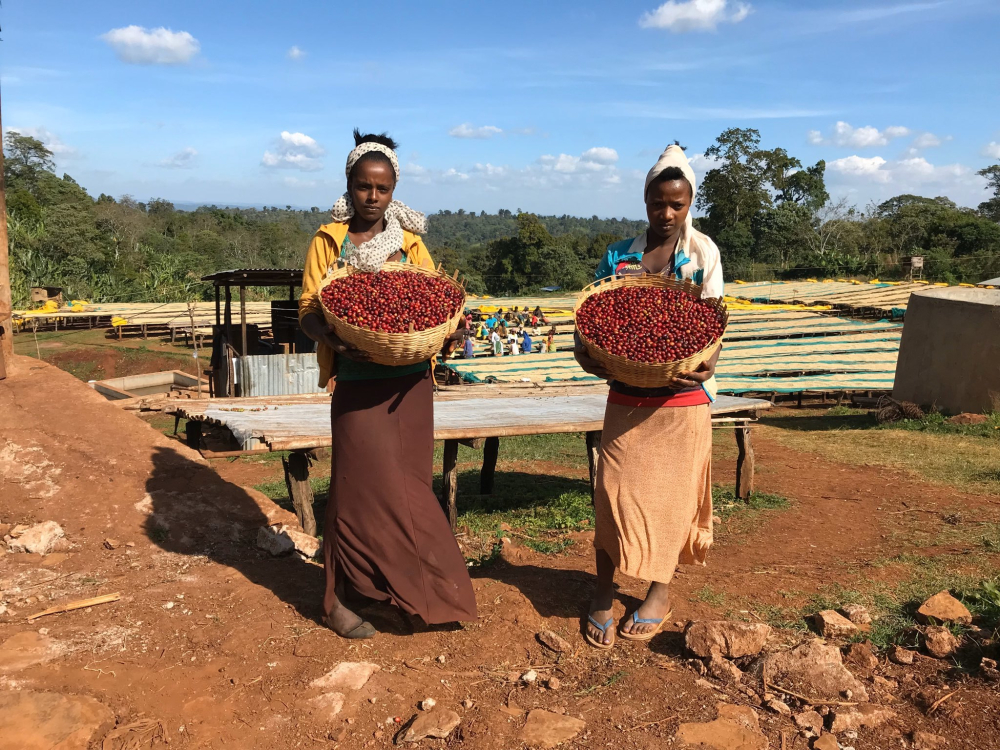
Anasola Manor, one of the few privatized coffee processing stations in Ethiopia, is now taken over by a second-generation operator, Israel Degfa. When the second-generation operator was still young, he learned a lot about coffee bean production from his father who ran a coffee cooperative and his mother who sold raw coffee beans at the station. Today, with years of experience and hard work, Israel Degfa has 48 washing plants and 5 sun treatment plants.
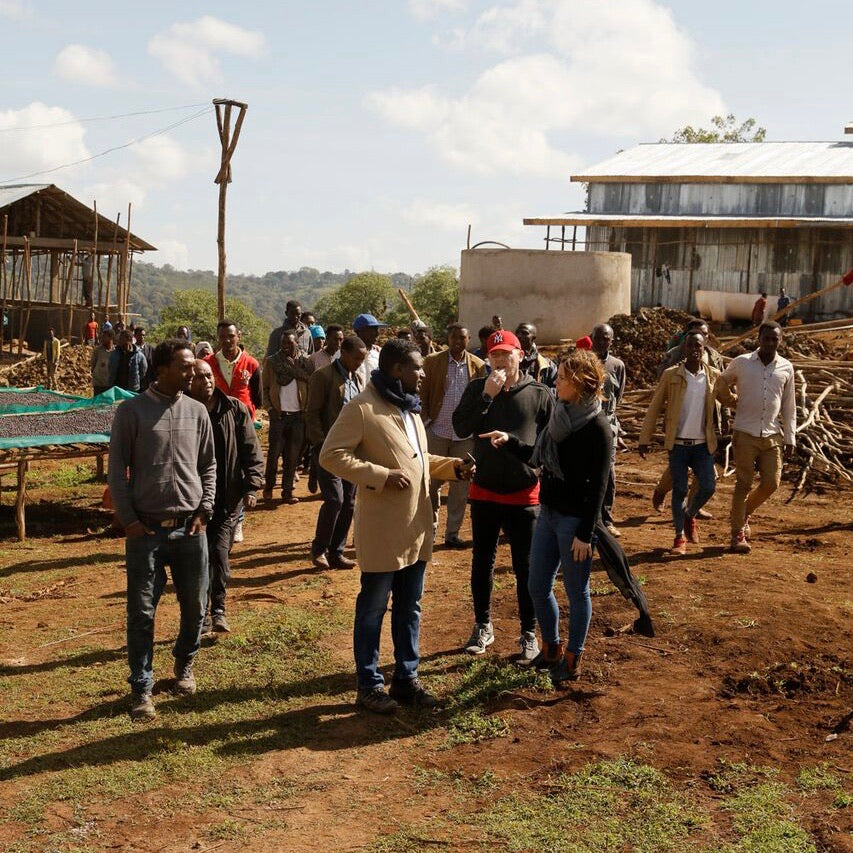
Before 2018, Anasola Manor produced only sun-dried coffee beans because there was no washing plant. Taking advantage of Anasola's proximity to the Turo River, a water washing plant for raw coffee beans was set up in 2018, and the clean water used in the washing operation comes from this river. It is the emergence of the washing treatment plant that Anasola's coffee beans have become one of the few farm-style washed coffee beans in Ethiopia.
This Dorothy coffee bean in Qianjie is treated with enzyme washing. After the selected coffee fruit is peeled and peeled, it is poured into a container and fermented sealed with enzyme for 24 hours. After the fermentation process is completed, the coffee beans are poured into a large pool, soaked in clean water for 48 hours, then stirred, using the friction between the beans and the force of the water to clean the sticky pectin layer on the outside of the parchment. Finally, the washed coffee beans are evenly spread on the sun bed to dry.
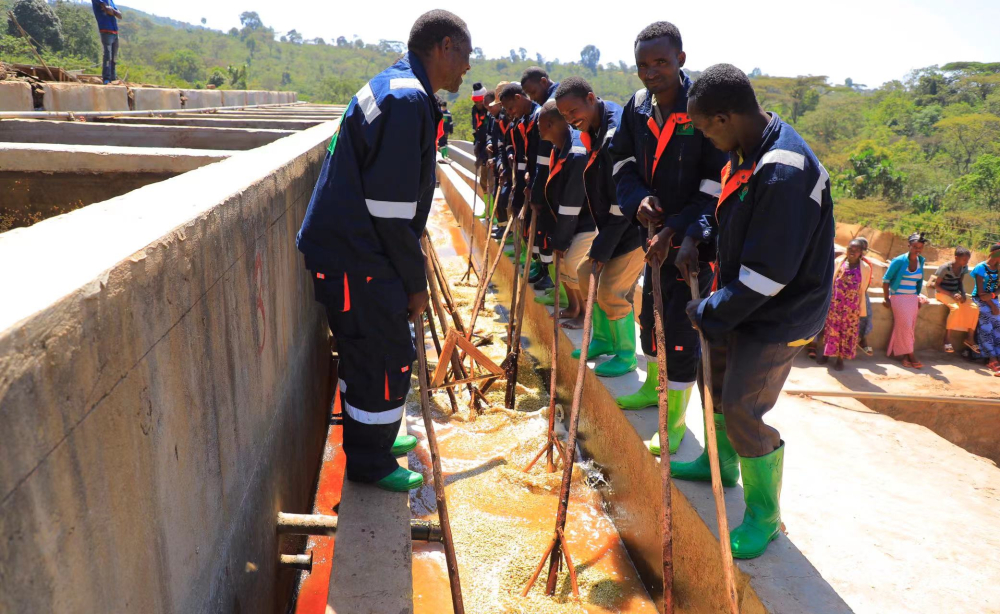
When baking this Dorothy coffee bean, the roaster of Qianjie Coffee takes into account the need to highlight the acidity, rich peach flavor and tea feeling, as well as to ensure that the local native coffee beans of different sizes are roasted evenly, slowing down the roasting pace and adopting the degree of medium-light roasting.
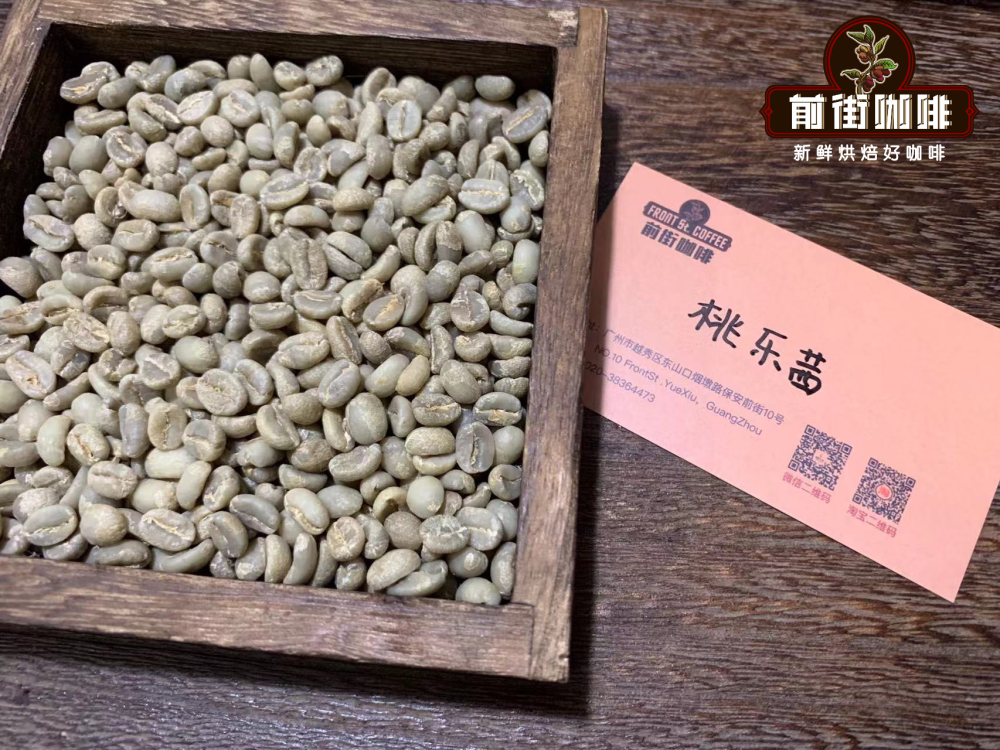
When brewing this coffee bean, Qianjie recommends using Hario V60 filter cup, water temperature of 91 degrees Celsius, medium and fine grinding degree, and three-stage water injection.
Filter cup: Hario V60
Water temperature: 91 degrees Celsius
Amount of powder: 15g
Ratio of powder to water: 1:15
Grinding degree: the pass rate of Chinese standard No. 20 screen is 80%.
First, wet the coffee powder completely by injecting 30 grams of hot water and steaming for 30 seconds, then pour in a small water flow from the central point and slowly circle to 125 grams for segmentation. the water level in the filter cup is about to expose the powder bed and continue to inject water around to 225 grams. Wait for the water in the filter cup to completely drop to the bottom of the sharing pot to remove the filter cup, the total extraction time is about 2 minutes.
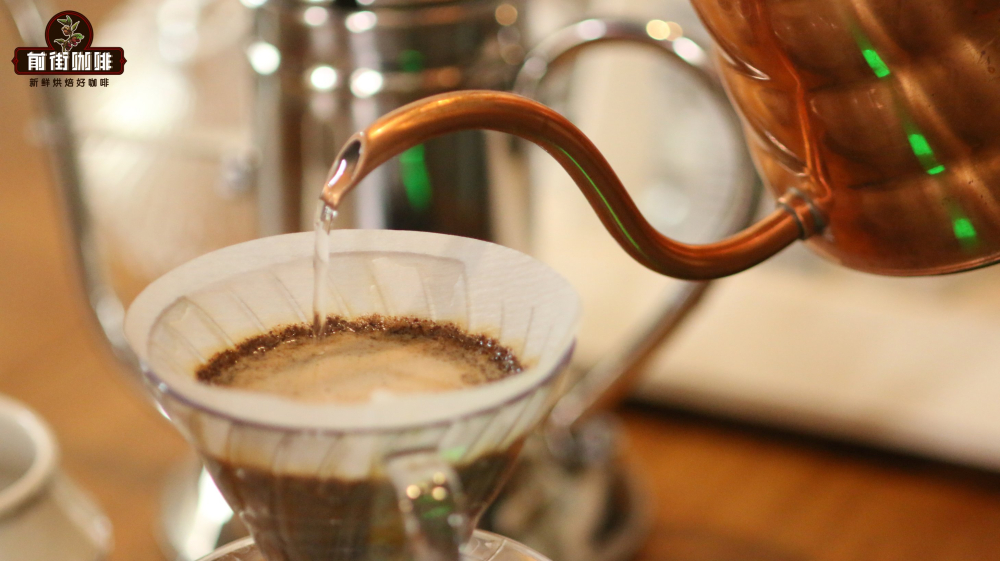
After the Essex Dorothy coffee beans in the front street have been brewed, you can smell a relatively elegant flower aroma, rich peach aroma, citrus-like acidity and a sweet finish like oolong tea. the overall feeling is like drinking a cup of white peach oolong tea.
For more information about coffee beans, please follow the coffee workshop (Wechat official account cafe_style) and exchange professional coffee knowledge. Please add Wechat account kaixinguoguo0925.
Important Notice :
前街咖啡 FrontStreet Coffee has moved to new addredd:
FrontStreet Coffee Address: 315,Donghua East Road,GuangZhou
Tel:020 38364473
- Prev

What are the kinds of Arabica beans how to distinguish Arabica from Rosa Bourbon and Ironpika Coffee beans
Professional coffee knowledge exchange more coffee bean information please follow the coffee workshop (Wechat official account cafe_style) do you know what Rosa Coffee looks like? What does bourbon look like? There are many kinds of coffee, but many people don't know how to distinguish them. Despite the changes in flavor and appearance, coffee
- Next
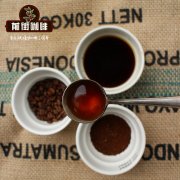
Coffee and red wine treatment Kaduai seed of Hartman Manor in Panama
Professional coffee knowledge exchange more coffee bean information please pay attention to the coffee workshop (Wechat official account cafe_style) red wine treatment (also known as carbon dioxide treatment), also known as red wine treatment, inspired by the red wine brewing process. Red wine treatment rules can ensure the quality of coffee beans by controlling PH value, even temperature and humidity, while airtight fermentation makes coffee beans more fragrant.
Related
- Does Rose Summer choose Blue, Green or Red? Detailed explanation of Rose Summer Coffee plots and Classification in Panamanian Jade Manor
- What is the difference between the origin, producing area, processing plant, cooperative and manor of coffee beans?
- How fine does the espresso powder fit? how to grind the espresso?
- Sca coffee roasting degree color card coffee roasting degree 8 roasting color values what do you mean?
- The practice of lattes: how to make lattes at home
- Introduction to Indonesian Fine Coffee beans-- Java Coffee producing area of Indonesian Arabica Coffee
- How much will the flavor of light and medium roasted rose summer be expressed? What baking level is rose summer suitable for?
- Introduction to the characteristics of washing, sun-drying or wet-planing coffee commonly used in Mantenin, Indonesia
- Price characteristics of Arabica Coffee Bean Starbucks introduction to Manning Coffee Bean Taste producing area Variety Manor
- What is the authentic Yega flavor? What are the flavor characteristics of the really excellent Yejasuffi coffee beans?

